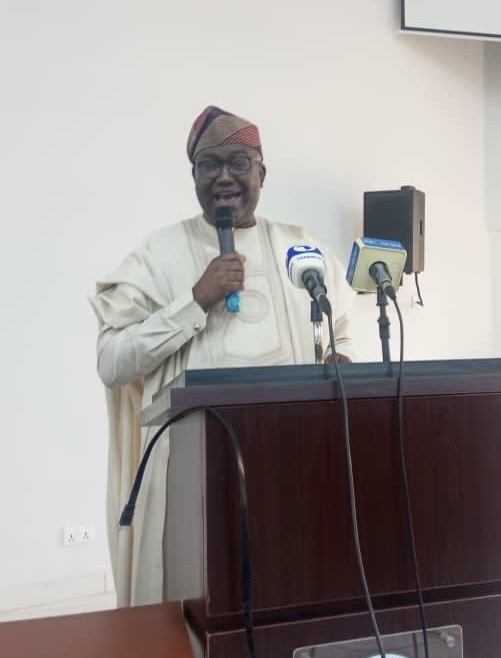By Chesa Chesa
Nigeria’s agricultural sector has vast opportunities but is limited by sundry issues of which the latest and most urgent are rising insecurity in farm lands across the country and climate change.
This was the submission of Dr. Gbenga Olawepo-Hashim, a frontline politician and a former presidential candidate at the 27th annual convention and the 26th annual lecture series of the Alumni Association of the Federal University of Agriculture, Abeokuta, FUNAAB, Ogun State on Saturday.
Hashim noted that according to the National Bureau of Statistics (NBS), between 2022 and 2024, about half a million farmers were displaced, leading to a loss of over N2 trillion.
In the Middle Belt, he said study further revealed that a drop of over 70 per cent in farming activities leading to “shortages of maize crops, yam, etc.
According to him, the Institute of Peace Study revealed that in 2024, over 3,500 cases of kidnapping occurred in Nigeria.
“Apart from the above urgent issues, there are other issues that have fairly been around for a while undermining agricultural productivity and prosperity in the sector. They include the following:
“Poor Infrastructure and Market Access
Poor road networks hinder timely delivery of farm produce to markets. The African Development Bank (AFDB) notes that post-harvest losses in Nigeria exceed $9 billion annually, primarily due to inadequate transportation and storage,”.
On the role of Alumni Contributions to Development, Hashim emphasised that “Alumni Associations all over the world serve the same or similar purpose:?Provide a platform for networking. They help alumni stay connected and maintain relationship with the Alma mater. Support the Alma mater: Alumni Association can support the development and advancement of their alma mater.”
On their roles to national developments, he submitted that Alumni associations increasingly shape national development through funding, innovation, and strategic investments.
He however argued that only a minority target agriculture despite its critical economic role as according to him, “Nigeria’s top alumni associations collectively represent over 5 million members.
15% of alumni are engaged in agribusiness and food-related industries”.



